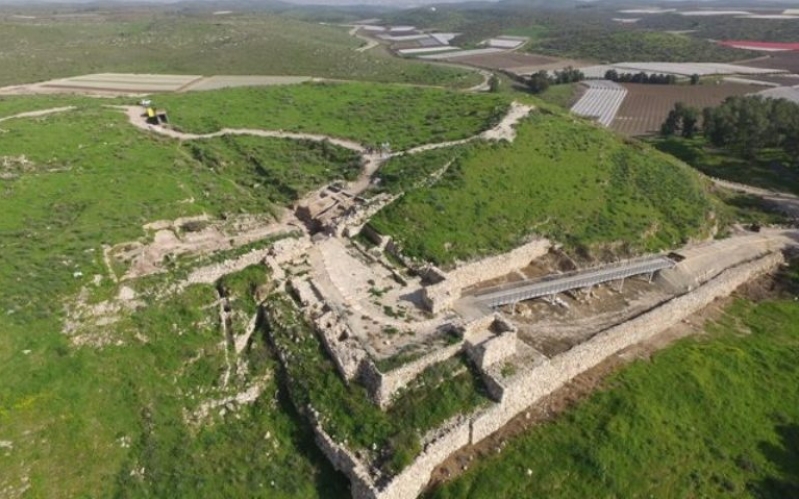
Israeli archaeologists stated Friday they have evidence the biblical King Hezekiah indeed destroyed the high places and idols in Israel as described in the Bible, evidence that officials said highlights Israel's past connection to the local land and helps draw the country's boundaries. The Bible in II Kings 18:4 states Hezekiah, the twelfth king of Judea, "removed the high places, smashed the sacred stones and cut down the Asherah poles.
Calling it "an important and unusual discovery," Israel Antiquities Authority representative said excavations in the Tel Lachish National Park in central Israel revealed a "gate-shrine" from the First Temple period, about the 8th century B.C. It's the largest known gate from the First Temple period in the country, reports CBN News.
The 80-by-80-foot Lachish city gate is preserved to a height of 16 feet. It consists of six chambers - three on each side, with the city's main street passing between them.
"The size of the gate is consistent with the historical and archaeological knowledge we possess, whereby Lachish was a major city and the most important one after Jerusalem," excavation director Sa'ar Ganor said.
According to the biblical narrative, everything took place at the city gates where the elders, judges, governors, kings and officials sat on benches. "These benches were found in our excavation," Ganor said.
IAA staffers conducted the excavation from January through March at the initiative of the Ministry of Jerusalem and Heritage, in cooperation with the Nature and Parks Authority. The excavation completely exposed the gate, which was partially uncovered in a joint Tel Aviv University, British excavation decades ago.
The plan is to develop the Tel Lachish National Park.
Artifacts discovered in its rooms give clues as to how they were used 2,800 years ago. Benches with armrests were in the first chamber. At the foot of the benches were many finds, including jars, scoops for loading grain and jar handles bearing the name of the official or a seal impression indicating they belonged to the king.
The IAA said the jars seem to relate to the Kingdom of Judah's military and administrative preparations for the war against Assyrian King Sennacherib in the late 8th century B.C.
Ganor said they were excited to find two four-horned altars and scores of ceramic finds, including lamps, bowls and stands in the room. He said the horns on the altar had been "intentionally truncated."
"That is probably evidence of the religious reform attributed to King Hezekiah, whereby religious worship was centralized in Jerusalem and the cultic high places that were built outside the capital were destroyed," Ganor said.
Shaul Goldstein, director general of the Nature and Parks Authority, said Tel Lachish is one of the most "quintessential places" that offers "proof of Israel's hold on the its land."







